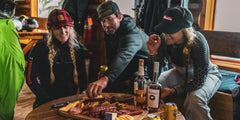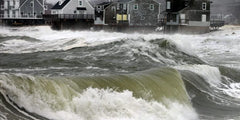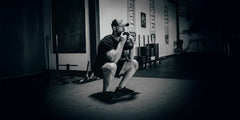
Growing up on a farm in Wisconsin, our neighbors were like family. We helped each other out, kept in close contact, and for lack of better way of saying it, acted like a team.
But as I’ve moved around the country, I’ve learned that most people do not have that type of a connection with their neighbors. In fact, at times, living in places like Los Angeles, I hardly knew anyone. The result of this, in an emergency, can frankly be dangerous.
Knowing your neighbors helps to ensure the safety and well-being of everyone in your community. In an emergency, quick and effective communication is essential to coordinating a response and getting help to those who need it. When you know your neighbors, you are simply a step ahead of the game.
Having a strong sense of community and knowing your neighbors also makes it easier to work together to address emergencies. For example, in the case of a natural disaster such as a hurricane or tornado, knowing your neighbors can help you organize a neighborhood watch, coordinate evacuation plans, and pool resources such as food, water, and shelter. It can help you to identify those in your community who may need additional assistance, such as elderly or disabled individuals, or those with unique skills, like doctors, construction workers or electricians.
So before we get in to neighborhood plans, let’s first talk about effective ways to get to know your neighbors, and create a community:
- Introduce yourself: A simple introduction can go a long way in starting a relationship with your neighbors. Take the time to introduce yourself and engage in small talk when you have the opportunity. If someone new is moving in, bring new neighbors a bottle of wine with your address and phone number on it.
- Attend community events: Community events such as neighborhood block parties, festivals, and local concerts are great opportunities to meet new people and make connections. If there aren’t any, host one yourself. A simple note on everyone’s door will get the word out.
- Start a neighborhood association or club: My neighbors go on runs with me, shoot archery, and come over for BBQ’s. And as our group has grown, others have paid attention and joined. Not only are we bonding, but we’re also pushing each other to develop skills and strength that may come in handy some day.
- Participate in online community groups: Many neighborhoods have online community groups or forums in Facebook or Nextdoor where residents can share information, ask questions, and connect with each other. That said, my personal experience is that these forums can often turn in to endless posts of complaints. Keep positive, share what is important and be helpful in answering others’ questions.


